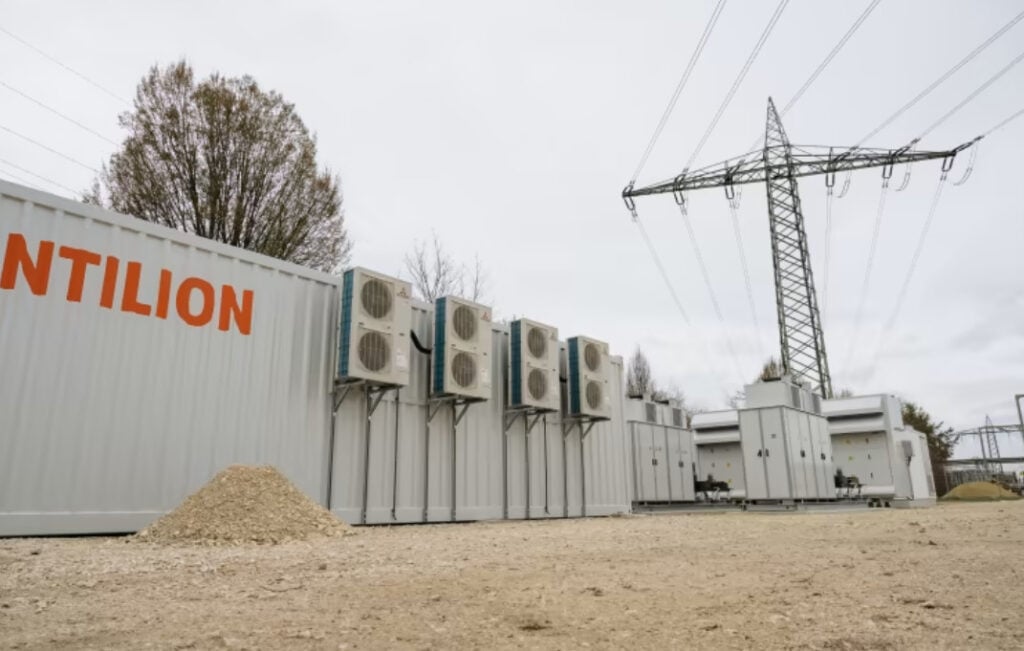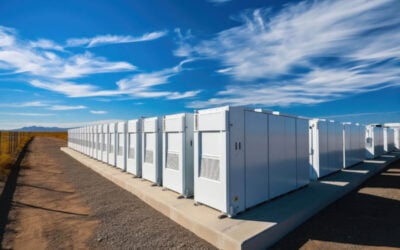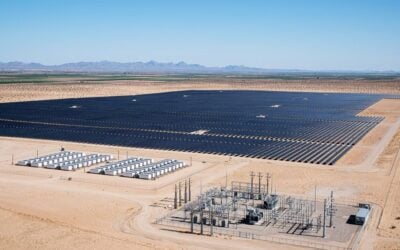
Utility and network operators RheinEnergie and Bayernwerk have respectively started building and commissioned 7MWh battery storage projects in Germany.
Utility RheinEnergy announced last week (24 July) the start of construction on a 32MW solar PV, 7MWh battery energy storage system (BESS) project in the northern state of Mecklenburg-Vorpommern. It will be commissioned in 2024.
Enjoy 12 months of exclusive analysis
- Regular insight and analysis of the industry’s biggest developments
- In-depth interviews with the industry’s leading figures
- Annual digital subscription to the PV Tech Power journal
- Discounts on Solar Media’s portfolio of events, in-person and virtual
A few days later (28 July), network operator and energy solutions provider Bayernwerk and utility and network operator Lechwerke together announced the commercial operation of a 7MW/7.4MWh BESS in Bavaria.
Lechwerke and Bayernwerk utilise existing reserve grid connection
Lechwerke and Bayernwerk’s project will be monetised through participating in the electricity markets as well as providing grid support services. Bayernwerk is providing technical leadership on the project while Lechwerke will manage the BESS’ trading activity. Ownership of the project is being split evenly between the two companies.
A ‘reserve’ grid connection for the project was provided by SGL Carbon, a manufacturer of carbon-based products. The connection is a secondary one for SGL alongside its main grid connection, and it will continue to be able to use it if ever needed. This method of getting onto the grid was cited as an important locational advantage for the project, the companies said.
The BESS is comprised of two containerised BESS units with a precise storage capacity of 7,442kWh and the grid connection capacity is up to 7,560kWh. Although the announcement didn’t say it, pictures provided showed it was provided by system integrator Intilion (the company which recently pulled IPO plans), which is also based in Germany.
Bayernwerk said that Bavaria will need 1GW of battery storage to achieve net zero by 2040, corresponding to roughly 10MW per district.
“The conversion of the energy system to regenerative generation systems with fluctuating feed-in requires the possibility of chronologically synchronising consumption and generation. Battery storage systems like the project in Meitingen make an important contribution to the success of the energy transition,” says Dr. Sabine Jarothe, head of the Bavarian Ministry of Economic Affairs, attending the opening ceremony.
Lechwerke, or LEW, will also be involved in the first pilot project of transmission system operator (TSO) Amprion’s ‘distributed’ Grid Booster BESS rollout, it said.
RheinEnergie building its first BESS in Germany
RheinEnergie’s solar-plus-storage project will be its largest solar PV project at 32MWp and its first to use energy storage technology, with the 7MWh BESS.
The company won state subsidies through ‘Innovation Tenders‘ launched by Germany in the last few years, which pays an additional premium per kWh of solar energy discharged by co-located projects. However, the award only covers part of the solar project, totalling 20MWp.
“With the battery storage system, we are creating the necessary flexibility to generate electricity to market even when the sun is not shining. The fact that we were successful in the demanding environment of an innovation tender shows that RheinEnergie has the know-how to develop the best solutions for the energy transition,” said Achim Südmeier, sales director for the company.
Construction has now started with posts being driven into the ground by piling machines. Installation of the solar modules will start in October this year and the solar park will be commissioned at the start of 2024.
Goldbeck Solar will build the solar PV plant while RheinEnergie did not specify who would build or provide the BESS.
The utility currently operates a portfolio of 57MWp of solar PV and 172MW of wind power across Germany.






